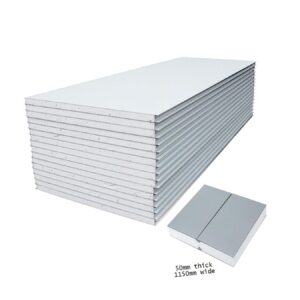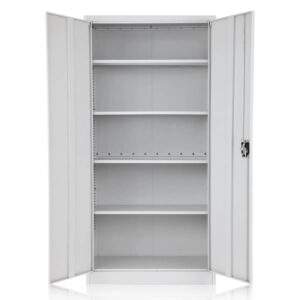Everything You Must Know About EPS Ceiling Panels
In the dynamic landscape of sustainable
construction materials, EPS (Expanded Polystyrene) insulated panels have
emerged as a flexible and environmentally conscious choice for architects,
builders, and homeowners. These panels, renowned for their thermal insulation
and structural reliability, find diverse applications from roofing to walls,
catering to the demands of contemporary construction endeavors.
At Storeway, we champion a diverse
selection of EPS insulated panels, including specialized options like
EPS ceiling panels, tailored to meet the evolving demands of the construction
sector. Let's delve into the reasons behind the rising popularity of EPS panels
and their contribution to sustainable building practices.
Understanding EPS Insulated Panels:
EPS panels feature a core crafted from
expanded polystyrene, a lightweight and rigid foam plastic renowned for its
exceptional thermal insulation properties. This core is encased between two
facing materials, typically metal or fiberglass reinforced plastic sheets,
ensuring both durability and structural resilience. The outcome is a
high-performance panel offering superior thermal efficiency, moisture
resistance, and fire retardation.
Advantages of EPS Insulated Panels:
Energy Efficiency: EPS Insulated
Panel
heat transfer, thereby diminishing the reliance on heating and cooling systems,
resulting in decreased energy consumption and utility expenses over the
building's lifespan.
Durability: Despite their lightweight construction,
EPS panels exhibit remarkable strength and resilience, capable of withstanding
harsh weather conditions, impacts, and wear, ensuring prolonged durability and
minimal maintenance demands.
Swift Installation: EPS panels are prefabricated off-site,
facilitating expedited and seamless installation processes. This not only
accelerates construction timelines but also mitigates labor costs and on-site
waste.
Versatility: From residential dwellings to
commercial complexes and industrial establishments, EPS panels can be tailored
to accommodate diverse architectural designs and structural prerequisites. They
are available in various thicknesses, dimensions, and finishes to cater to a
wide array of applications.
Environmental Sustainability: As a recyclable material, EPS aids in
reducing carbon footprints and waste accumulation. Furthermore, its lightweight
composition minimizes emissions during transportation and installation
processes.
Applications of EPS Insulated Panels:
Roofing: EPS panels deliver exceptional thermal
insulation for roofs, ensuring consistent indoor temperatures and mitigating
heat loss or gain.
 |
| EPS Ceiling Panels |
Walls: Whether employed in external or internal walls, EPS panels augment the building's thermal efficiency and contribute to sound insulation
Ceilings: EPS ceiling panels offer superior acoustic properties,
enhancing indoor air quality and fostering comfortable living or working
environments.



Comments
Post a Comment